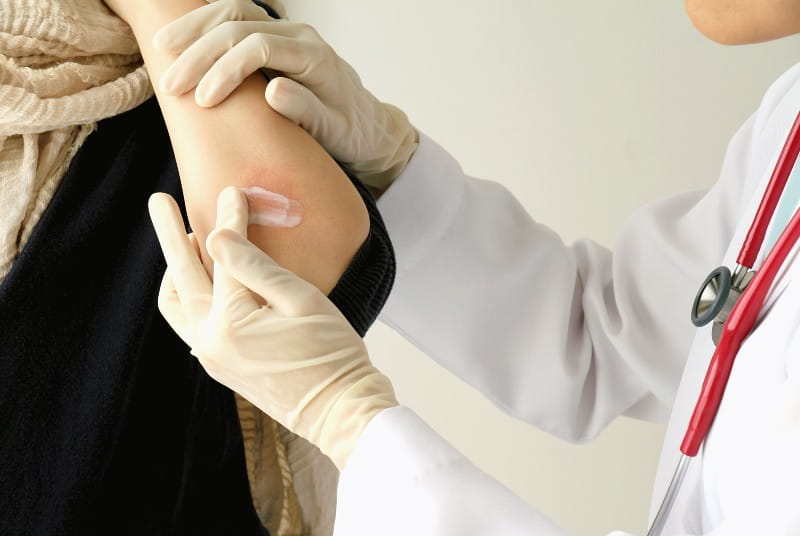Find answers and stop the itch
If you suffer from dermatitis, you know that it’s more than just red and itchy skin. It can be annoying, embarrassing and, sometimes, just downright painful. Fortunately, there are many ways you can find relief from dermatitis. And the best place to start is with an appointment to see your primary care doctor.
“Dermatitis is a general term that can describe many different skin conditions,” explains Physician Assistant Allison Ovide, PA, a family medicine provider at Riverside Fishing Bay Family Practice in Deltaville, Va. “Fortunately, there are very effective ways to help relieve your symptoms. The first step, though, is to accurately diagnose what type of dermatitis you may have.”
The most common types of dermatitis include:
- Eczema (atopic dermatitis) – A common skin condition that causes the skin to become red, itchy, dry and bumpy. It’s often found on the hands, neck, inner elbows, knees, feet and around the eyes.
- Contact dermatitis – Sometimes, an environmental allergen (like pollen) or certain chemicals (sometimes found in clothing or soap) can irritate the skin, causing what’s called contact dermatitis. It is not contagious and can be found anywhere that the irritant touched the skin.
- Seborrheic dermatitis – This dermatitis affects the scalp and causes red, flaky, dry and itchy skin. It’s also called dandruff.
Diagnosing your dermatitis
Your doctor will ask you a few questions to help understand what's triggering your skin irritation. Those questions may include:
- When did your symptoms start?
- Do you have a family history of dermatitis?
- Is the irritation localized to one part of the body, or is it spread across different areas?
- Have you used any new products that have come in contact with your skin, including soap, lotions, make-up or laundry detergent?
- Are you experiencing a lot of stress?
- Have you been exposed to anything that you know you are allergic to, such as pollen, dust or chemicals?
- Do you notice your dermatitis gets worse when you eat or drink certain types of foods, like dairy?
Treating your dermatitis
Once your doctor has a better sense of what’s causing your symptoms, you can create a plan that relieves your symptoms.
“Treating dermatitis comes down to avoiding what’s triggering your symptoms as much as possible and having a plan in place to treat symptoms when they do occur,” reassures Ms. Ovide.
Your treatment plan may include:
- Medication. Prescription and over-the-counter topical creams can treat symptoms when they occur, including itchiness, redness, flaking and swelling.
- Manage stress. If your dermatitis is triggered by stress, you can try different methods to reduce your level of stress, like meditation, therapy, exercise or self-care.
- Ultraviolet light therapy. Your doctor may prescribe UV therapy to help heal your skin and prevent flares. You should only do UV therapy with instructions from your doctor.
- Skin care. Your doctor will recommend special steps to care for your sensitive skin, like using a mild soap and moisturizer, and taking lukewarm baths and showers.
- Reduce exposure to triggers. If you know something makes your dermatitis worse, you can take steps to avoid it. That may include taking allergy medicine at certain times of the year and staying inside as much as possible, switching detergents or eliminating a specific food from your diet, like dairy.
“Living with dermatitis can be frustrating, but there’s no need to suffer in silence,” encourages Ms. Ovide. “You and your doctor can – and will – identify what’s causing your symptoms and find a way to ease those symptoms.”
Get relief from dermatitis schedule an appointment with Ms.Ovide or another Riverside provider today! Find a provider near you.
Related:



